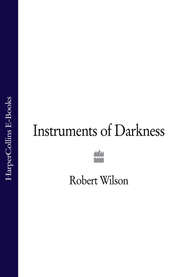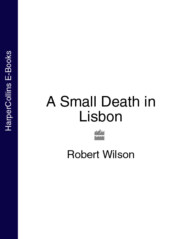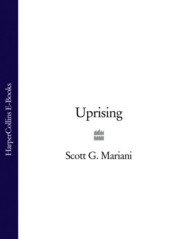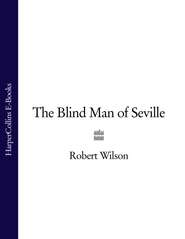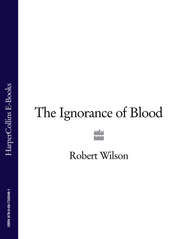По всем вопросам обращайтесь на: info@litportal.ru
(©) 2003-2024.
✖
The Hidden Assassins
Автор
Год написания книги
2018
Настройки чтения
Размер шрифта
Высота строк
Поля
‘And to what extent do you have control over what they do?’
‘Those words “national security” are the problem,’ said Elvira. ‘For instance, they want to talk to you on a matter of “national security”, which means I’m told nothing other than it has to be private and at length.’
‘That’s not going to be easy today.’
‘They’ll make time for you—at night, whenever.’
‘And “national security” is the only clue they’ve given?’
‘They’re interested in your Moroccan connections,’ said Elvira, ‘and have asked to interview you.’
‘Interview me?’ said Falcón. ‘That sounds like it’s for a job and I’ve already got one of those with plenty of work in it.’
‘Where are you going now?’
‘I’m tempted to be present at the search of the Imam’s apartment,’ said Falcón. ‘But I think I’m going to follow up the Informáticalidad lead. That’s a very strange way to use an apartment for three months.’
‘So you’re keeping an open mind on this, unlike our CNI friends,’ said Elvira, nodding at the door.
‘I thought Juan was very eloquent on the subject.’
‘That’s how they want everybody else to think, so that they’ve got all their bases covered,’ said Elvira, ‘but there’s no doubt in my mind that they believe they’ve hit on the beginning of a major Islamic terrorist campaign.’
‘To bring Andalucía back into the Islamic fold?’
‘Why else would they want to talk to you about your “Moroccan connections”?’
‘We don’t know what they know.’
‘I know that they’re seeking redress and greater glory,’ said Elvira, ‘and that worries me.’
‘And what was going on with Inspector Jefe Barros?’ asked Falcón. ‘He was present but nothing more, as if he’d been told he was allowed to attend but not to say a word.’
‘There’s a problem, which they will explain to you directly. All I have been told by the head of the CGI in Madrid is that, for the moment, the Seville antiterrorism unit cannot contribute to this investigation.’
Consuelo sat in her office in the restaurant in La Macarena. She had kicked off her shoes and was curled up foetally on her new expensive leather office chair, which rocked her gently backwards and forwards. She had a ball of tissue in her hands, which was crammed into her mouth. She bit against it when the physical pain became too much. Her throat tried to articulate the emotion, but it had no reference points. Her body felt like ruptured earth, spewing up sharp chunks of magma.
The television was on. She had not been able to bear the silence of the restaurant. The chefs weren’t due to start preparing the lunch service until 11 a.m. She had tried to walk her extreme agitation out of herself, but her tour of the spotless kitchen, with its gleaming stainless steel surfaces, its knives and cleavers winking encouragement at her, had terrified rather than calmed. She’d walked the dining rooms and the patio, but none of the smells, the textures, not even the obsessive order of the table settings could fill this aching emptiness pressing against her ribs.
She had retreated to her office, locked herself in. The volume of the television was turned low so that she couldn’t make out the words, but she took comfort from the human murmur. She looked out of the corner of her eye at the images of destruction playing on the screen. There was the sharp smell of vomit in the room as she’d just thrown up at the sight of the tiny bodies under their pinafores outside the pre-school. Tears tracked mascara down her cheeks. The mouth side of the ball of tissue was slimy with sharp saliva. Something had been levered open; the lid was no longer on whatever it was she had inside her, and she, who had always prided herself on her courage to face up to things, could not bear to take a look. She squeezed her eyes shut at a new rising of pain. The chair empathized with the shudder of her body. Her throat squealed as if there was something sharp lodged across it.
The destroyed apartment block flickered on the screen in the corner of her eye. She couldn’t bear to switch off the TV and live with the only other occupant of the silence, even though the building’s collapse was an appalling replication of her own mental state. Only a few hours ago she had been more or less whole. She had always imagined the gap between sanity and madness as a yawning chasm, but now found it was like a border in the desert: you didn’t know whether you’d crossed it or not.
The TV pictures changed from the piles of rubble to a body bag being lifted into a cradle stretcher, to the wounded, staggering down pavements, to the jagged edges of shattered windows, to the trees stripped of all their leaves, to cars upside down in gardens, to a road sign speared into the earth. These TV news editors must be professionals in horror, every image was like a slap to the face, knocking a complacent public into the new reality.
Then calm returned. A presenter stood in front of the church of San Hermenegildo. He had a friendly face. Consuelo turned up the sound in the hope of good news. The camera zoomed in on the plaque and dropped back down to the presenter, who was now walking and giving a brief history of the church. The camera remained tight on the presenter’s face. There was an inexplicable tension in the scene. Something was coming. The suspense transfixed Consuelo. The presenter’s voice told them that this was the site of an old mosque and the camera cut to the apex of a classic Arabic arch. Its focus pulled wide to reveal the new horror. Written in red over the doors were the words: AHORA ES NUESTRA. Now it is ours.
The screen filled again with another montage of horror. Women screaming for no apparent reason. Blood on the pavements, in the gutter, thickening the dust. A body, with the terrible sag of lifelessness, being lifted out of the ruins.
She couldn’t bear the sight of any more. These cameramen must be robots to handle this horror. She turned the TV off and sat in the silence of the office.
The images had jolted her. The lid seemed to have slipped back over the darkness welling inside her chest. Her hands trembled, but she no longer needed to bite on the ball of tissue. The shame of her first consultation with Alicia Aguado came back to her. Consuelo pressed her hands to her cheekbones as she remembered her words: ‘blind bitch’. How could she have said such a thing? She picked up the phone.
Alicia Aguado was relieved to hear Consuelo’s voice. Her concern raised emotion in Consuelo’s throat. Nobody ever cared about her. She stumbled through an apology.
‘I’ve been called worse than that,’ said Aguado. ‘Given that we’re the most inventive insulters in the world, you can imagine the special reserves that are drawn on when it comes to psychologists.’
‘It was unforgivable.’
‘All will be forgiven as long as you come and see me again, Sra Jiménez.’
‘Call me Consuelo. After what we’ve been through, all formality is out of the window,’ she said. ‘When can you see me?’
‘I’d like to see you tonight, but it won’t be possible before 9 p.m.’
‘Tonight?’
‘I’m very concerned about you. I wouldn’t normally ask, but…’
‘But what?’
‘I think you’ve reached a very dangerous point.’
‘Dangerous? Dangerous to whom?’
‘You have to promise me something, Consuelo,’ said Aguado. ‘You have to come directly here to me after work, and when our consultation is over you must go straight home and have somebody—a relative or a friend—to be there with you.’
Silence from Consuelo.
‘I could ask my sister, I suppose,’ she said.
‘It’s very important,’ said Aguado. ‘I think you’ve realized the extreme vulnerability of your state, so I would recommend that you confine yourself to home, work and my consulting room.’
‘Can you just explain that to me?’
‘Not now over the phone, face to face this evening,’ she said. ‘Remember, come straight to me. You must resist all temptations to any diversion, however strong the urge.’
Manuela Falcón sat in Angel’s big comfortable chair in front of the television. She was now incapable of movement, with not even the strength to reach for the remote and shut down the screen, which was transferring the horror images directly to her mind. The police were evacuating El Corte Inglés in the Plaza del Duque after four reports of suspicious packages on different floors of the department store. Two sniffer dogs and their handlers arrived to patrol the building. The image cut to a deserted crossroads in the heart of the city, with shoes scattered over the cobbles and people running towards the Plaza Nueva. Manuela felt pale, with just the minimum quantity of blood circulating around her head and face to maintain basic oxygenation and brain function. Her extremities were freezing, despite the open door to the terrace and the temperature outside steadily rising.
The telephone had rung once since Angel had left for the ABC offices where he hoped to put his finger to the thready pulse of a convulsing city. She’d had the strength then to answer it. Her lawyer had asked whether she’d seen the television and then told her that the Sevillana buyer had pulled out with an excuse about her ‘black’ money not being ready and that she would have to postpone the signing of the deed.
‘That’s not going to stop her from losing her deposit,’ said Manuela, still able to raise some aggression.
‘Have you been listening to what Canal Sur have been reporting?’ said the lawyer. ‘They’ve found a van with traces of a military explosive in the back. The editor of the ABC in Madrid was sent a letter from al-Qaeda saying that they would not rest until Andalucía was back in the Islamic fold. There’s some security expert saying that this is the start of a major terrorist campaign and there’ll be more attacks in the coming days.’
‘Fucking hell,’ said Manuela, jamming a cigarette into her mouth, lighting it.
‘So that 20,000 deposit your buyer might lose is looking like a cheap way out for her.’






